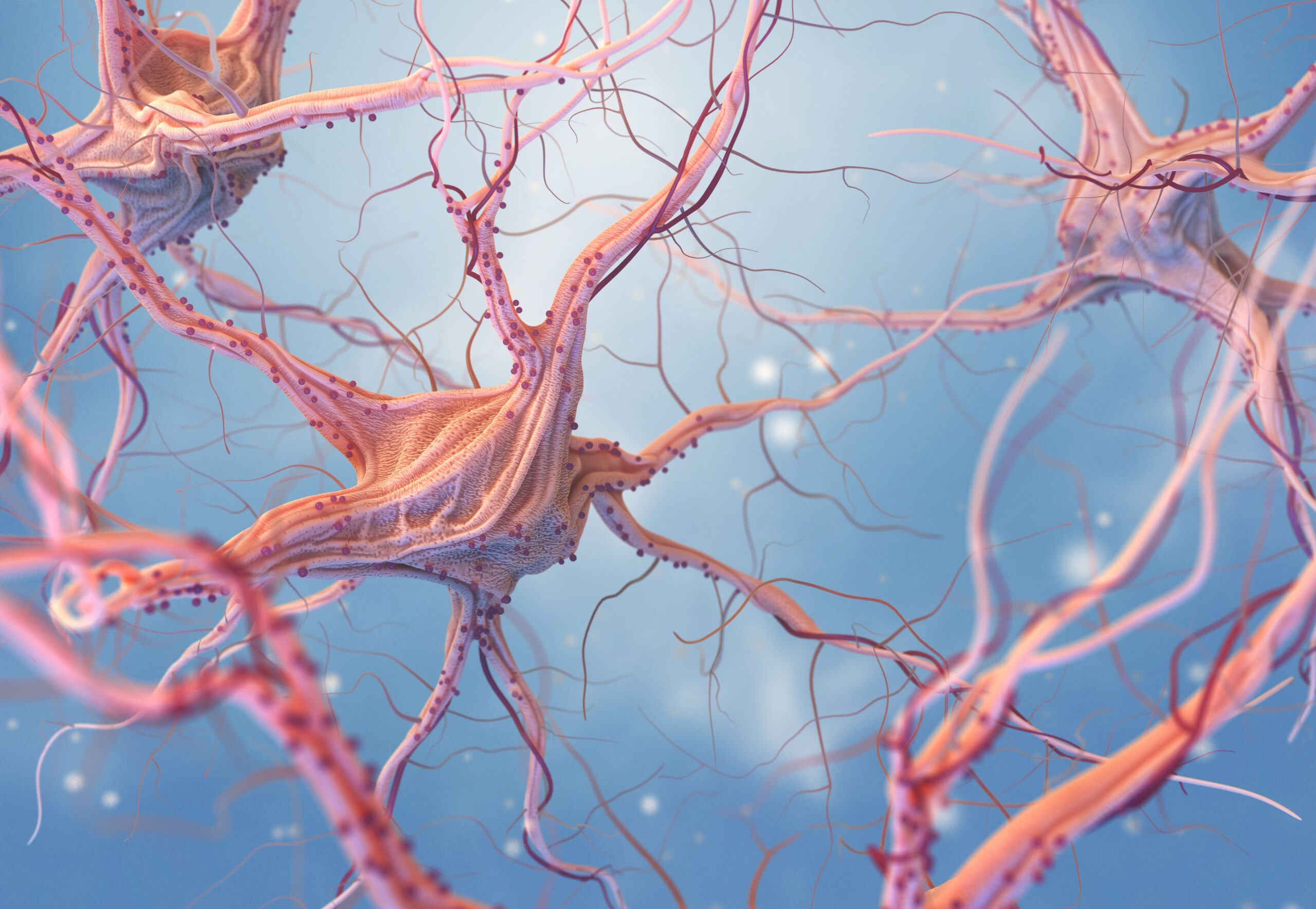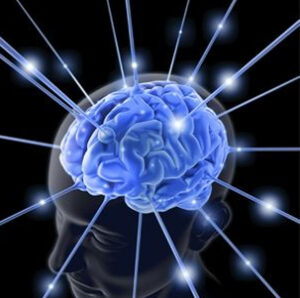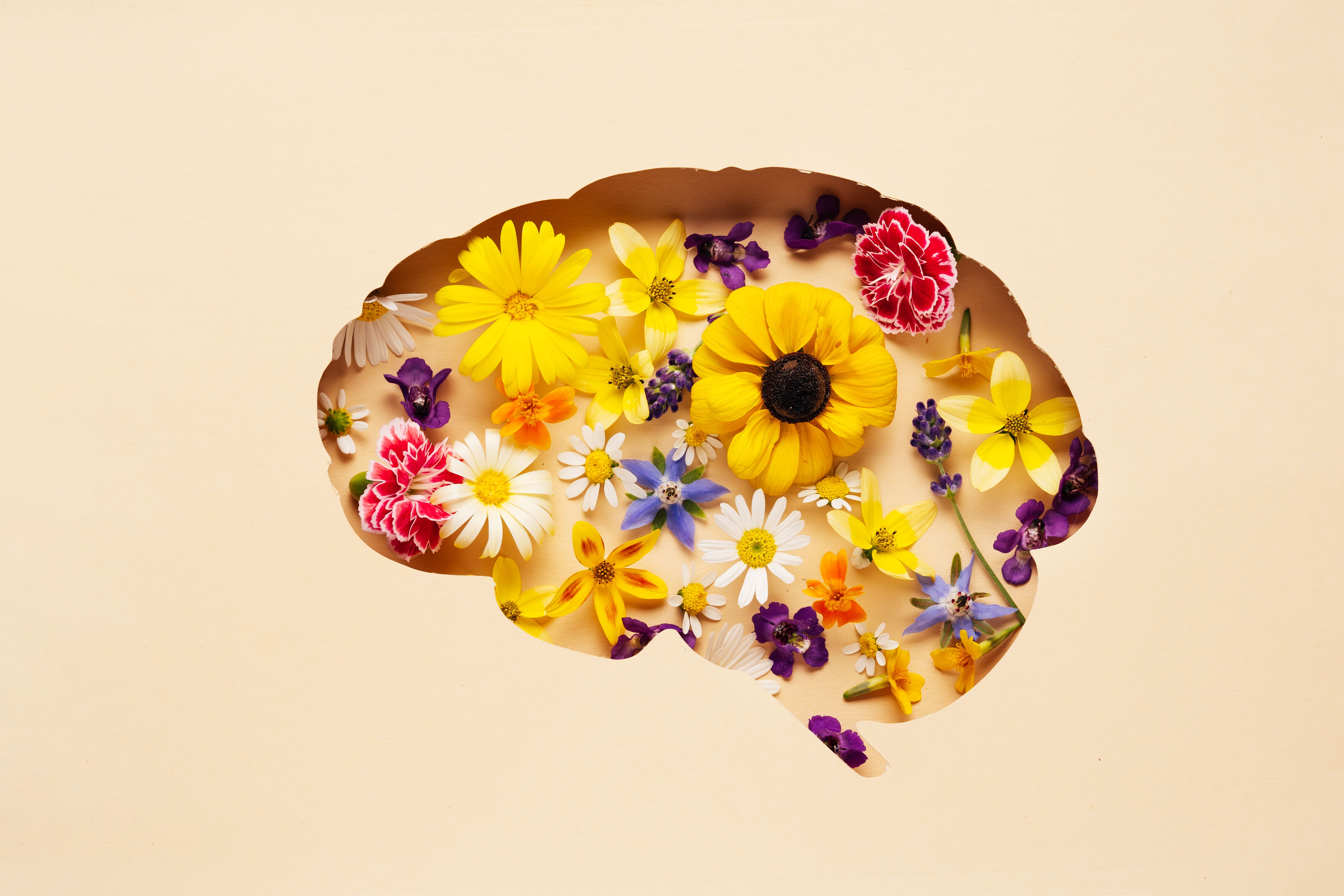The gut-brain axis is a term for the communication network that connects your gut and brain. There are approximately 100 billion neurons in the human brain; your gut contains 500 million neurons.
Your gut and brain are connected physically through millions of nerves, most importantly the vagus nerve. The gut and its microbes also control inflammation and make many different compounds that can affect brain health. Your gut and brain also communicate through hormone secretion and along what’s known as the HPA-axis, which manages our stress response.
For example, a large proportion of serotonin is produced in the gut. Your gut bacteria also produce a neurotransmitter called gamma-aminobutyric acid (GABA), which helps control feelings of fear and anxiety. Research in laboratory mice have shown that some probiotics can increase the release of GABA and decrease anxious and depressed behavior.
The gut-brain axis allows for communication between the gut and the brain, which can influence a range of physiological and psychological functions. For example, the gut can send signals to the brain to regulate hunger and satiety, while the brain can send signals to the gut to regulate digestion and nutrient absorption. The gut can also produce neurotransmitters such as serotonin and dopamine, which are important for regulating mood and behavior, and can influence the immune system, which has been linked to mental health conditions such as depression and anxiety.
The gut-brain axis is regulated by a range of factors, including diet, stress, and the gut microbiome. For example, stress can alter the gut microbiome, leading to an imbalance in gut bacteria, which can further exacerbate mental health conditions. Chronic stress has been linked to a range of mental health conditions, and studies have shown that stress-induced changes in the gut microbiome can lead to increased inflammation and other physiological changes that contribute to mental health issues.
Overall, the gut-brain axis is a complex and dynamic system that plays a critical role in regulating a range of physiological and psychological functions. Maintaining a healthy gut microbiome through diet, exercise, and stress management may help support mental and emotional well-being.
The gut, depression and inflammation
There is evidence to suggest that the gut plays an important role in the development and progression of depression, and that inflammation may be a key factor in this relationship. The gut-brain axis is a bidirectional communication pathway between the gut and the brain, and it is thought to be regulated by the gut microbiome, the immune system, and the endocrine system. Dysregulation of the gut-brain axis can lead to increased inflammation and changes in neurotransmitter levels, which may contribute to the development and progression of depression.
Research has shown that people with depression often have higher levels of inflammatory markers in their blood, such as C-reactive protein (CRP) and interleukin-6 (IL-6), which are associated with increased inflammation in the body. Inflammation is a natural response to infection or injury, but chronic inflammation can contribute to a range of health problems, including depression.
Studies have also shown that people with depression have an altered gut microbiome compared to people without depression. An imbalance in gut bacteria can lead to increased inflammation, which has been linked to depression. Additionally, the gut microbiome can produce neurotransmitters such as serotonin and dopamine, which are important for regulating mood and behavior.
What is the role of probiotics and probiotics in treatment of mental health conditions?
Foods containing bacteria that positively influence the gastrointestinal microbiome are termed, probiotics; compounds that promote the flourishing of these bacteria are termed, prebiotics.
The use of prebiotics and probiotics as adjunctive treatments for certain health conditions, including mental health conditions, has shown some promising results in research studies. While the evidence is not yet strong enough to recommend pre/probiotic therapies as a first-line treatment for these conditions, they may be useful as adjunctive treatments in combination with other conventional therapies.
It is important to note that the gut-brain axis is a complex and dynamic system, and that the relationship between the gut microbiome and mental health is not fully understood. While some research has shown promising results, more rigorous studies are needed to establish the efficacy and safety of microbiome influencing therapies for psychiatric conditions.
Irritable Bowel Syndrome: regular gut-brain malfunctioning?
IBS stands for irritable bowel syndrome, which is a chronic gastrointestinal disorder that affects the large intestine (colon). It is a common condition that affects up to 10-15% of adults in the United States and is more commonly diagnosed in women than in men.
The exact cause of IBS is not fully understood, but it is believed to be related to abnormalities in the way the brain and gut communicate, as well as changes in the gut microbiome and increased sensitivity to certain foods and stressors. Studies have shown that generalized anxiety disorder (GAD) is five times more common for people with IBS. Symptoms of IBS can vary but may include abdominal pain, bloating, constipation, diarrhea, and changes in bowel habits.
Sometimes messages between the gut and brain are missed or misinterpreted. In other words, your vagus nerve might be sending the wrong messages, or the right messages are traveling along, but your body is interpreting them as bad. This is when IBS symptoms make themselves known. For some people with IBS, managing these miscommunications is an everyday battle.
There is currently no cure for IBS, but a range of treatment options are available to manage symptoms and improve quality of life. These may include dietary modifications, such as increasing fiber intake or avoiding certain trigger foods, as well as medications to relieve pain and regulate bowel movements. Stress management techniques, such as cognitive behavioral therapy and relaxation exercises, may also be helpful in managing IBS symptoms.




